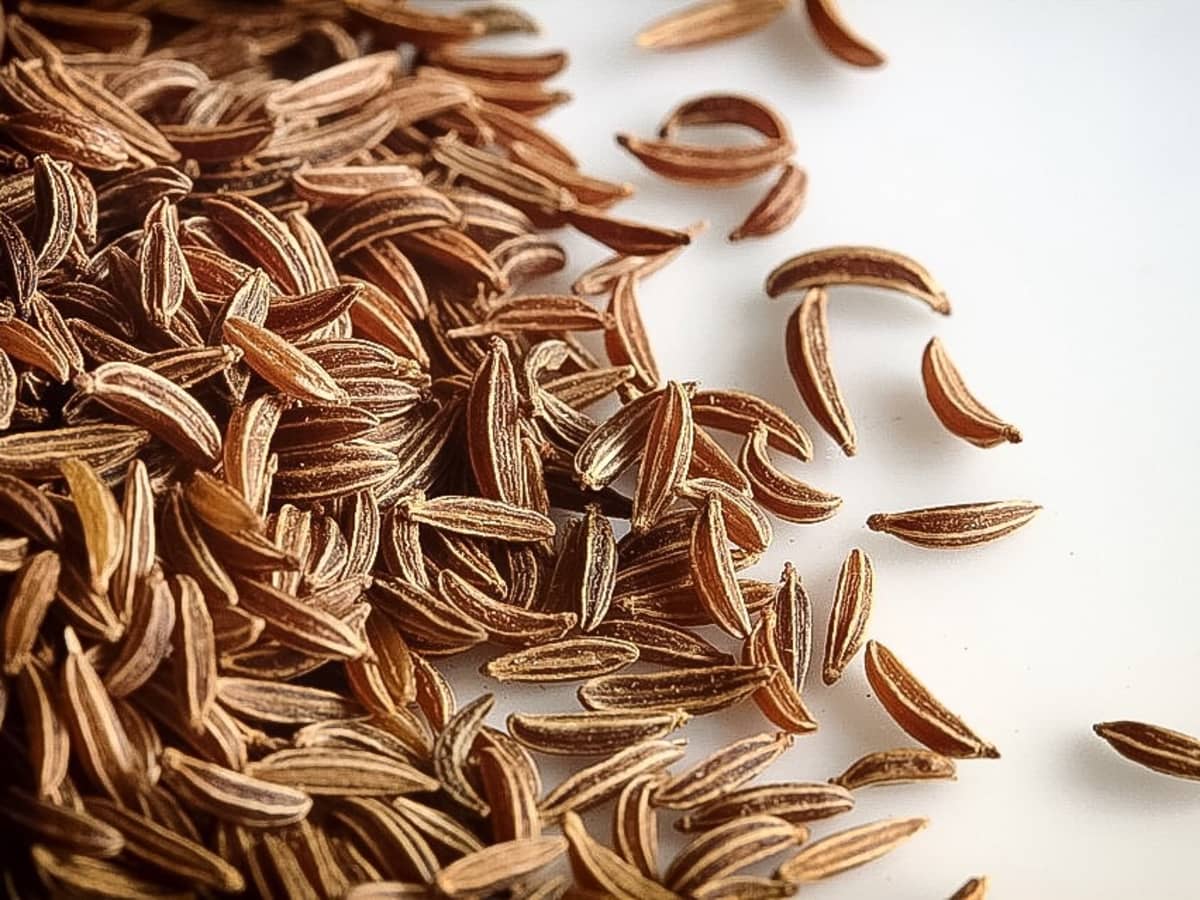
Caraway, often mistaken for cumin, is a spice with a rich history and unique flavor profile. Ever wondered what makes this tiny seed so special? Caraway seeds, known for their distinctive taste, have been used in cooking and medicine for centuries. They add a warm, slightly peppery flavor to dishes and are a staple in many European cuisines. But there's more to caraway than just its culinary uses. From aiding digestion to boosting immune health, this spice packs a punch. Ready to learn some intriguing facts about caraway? Let's dive into the world of this fascinating spice and uncover its secrets!
Key Takeaways:
- Caraway, also known as meridian fennel or Persian cumin, has been used since ancient times for its medicinal properties and distinct flavor, making it a versatile spice in various cuisines worldwide.
- Not only is caraway a flavorful spice, but it also offers health benefits, including aiding digestion, providing essential nutrients, and even potentially assisting with weight management. Its quirky history and diverse uses make it a fascinating addition to any kitchen.
What is Caraway?
Caraway, also known as meridian fennel or Persian cumin, is a spice with a rich history and diverse uses. Its seeds are small, crescent-shaped, and pack a punch of flavor. Let's dive into some fascinating facts about this unique spice.
-
Ancient Origins: Caraway has been used since ancient times. Evidence of its use dates back to the Stone Age, making it one of the oldest cultivated spices.
-
Medicinal Uses: Historically, caraway was used for its medicinal properties. It was believed to aid digestion, reduce bloating, and even act as a remedy for colic in infants.
-
Culinary Delight: Caraway seeds are a staple in many European cuisines. They are commonly used in bread, especially rye bread, sausages, and sauerkraut.
-
Distinct Flavor: The flavor of caraway is often described as a mix of anise, fennel, and cumin. This unique taste makes it a versatile spice in both sweet and savory dishes.
Caraway in Different Cultures
Caraway's popularity spans across various cultures, each with its own unique way of incorporating this spice into their cuisine and traditions.
-
German Cuisine: In Germany, caraway is a key ingredient in traditional dishes like sauerkraut and caraway cheese.
-
Middle Eastern Dishes: Middle Eastern cuisine uses caraway in spice blends like harissa and in dishes such as kibbeh.
-
Scandinavian Baking: Scandinavian countries use caraway in baking, particularly in rye bread and pastries.
-
Indian Cooking: In India, caraway is often confused with cumin but is used in spice blends like garam masala.
Growing and Harvesting Caraway
Caraway is not just a spice; it's a plant that requires specific conditions to thrive. Understanding how it grows can give insight into its unique characteristics.
-
Biennial Plant: Caraway is a biennial plant, meaning it takes two years to complete its life cycle. In the first year, it grows leaves, and in the second year, it flowers and produces seeds.
-
Climate Needs: It thrives in temperate climates with well-drained soil. Too much moisture can harm the plant.
-
Harvesting Time: Caraway seeds are harvested in late summer when the seed heads turn brown. They are then dried and threshed to collect the seeds.
-
Companion Planting: Caraway can be used in companion planting. It helps repel pests and attracts beneficial insects like predatory wasps.
Nutritional and Health Benefits
Caraway is not just flavorful; it also offers several health benefits that make it a valuable addition to your diet.
-
Rich in Nutrients: Caraway seeds are rich in vitamins and minerals, including iron, zinc, calcium, and magnesium.
-
Digestive Aid: Caraway is known for its digestive benefits. It can help reduce bloating, gas, and indigestion.
-
Antioxidant Properties: The seeds contain antioxidants that help protect the body from free radicals and reduce inflammation.
-
Weight Management: Some studies suggest that caraway may help with weight management by reducing appetite and increasing fat metabolism.
Fun and Unusual Facts
Caraway has some quirky and lesser-known facts that make it even more interesting.
-
Superstitions: In medieval times, caraway was believed to prevent theft. People would sprinkle caraway seeds in their homes to ward off thieves.
-
Bird Food: Caraway seeds are sometimes used in bird food mixes. Birds enjoy the seeds, and they can be a healthy addition to their diet.
-
Essential Oil: Caraway seeds are used to produce essential oil, which is used in aromatherapy and as a flavoring agent in the food industry.
-
Cosmetic Uses: Caraway oil is also used in cosmetics for its pleasant aroma and skin-soothing properties.
Caraway's Hidden Gems
Caraway isn't just a spice; it's a powerhouse of benefits. From aiding digestion to boosting immunity, this tiny seed packs a punch. Its rich history, dating back to ancient civilizations, shows its long-standing value. Caraway's unique flavor enhances dishes, making it a favorite in many cuisines. Plus, its essential oils are used in various medicinal and cosmetic products.
Incorporating caraway into your diet can improve health and add a burst of flavor to meals. Whether sprinkled on bread, mixed into soups, or brewed as tea, caraway offers versatility and nutrition. So next time you're cooking, consider adding a dash of caraway. Your taste buds and body will thank you.
Remember, small changes in your diet can lead to significant health benefits. Caraway might just be the simple, natural boost you need.
Frequently Asked Questions
Was this page helpful?
Our commitment to delivering trustworthy and engaging content is at the heart of what we do. Each fact on our site is contributed by real users like you, bringing a wealth of diverse insights and information. To ensure the highest standards of accuracy and reliability, our dedicated editors meticulously review each submission. This process guarantees that the facts we share are not only fascinating but also credible. Trust in our commitment to quality and authenticity as you explore and learn with us.


